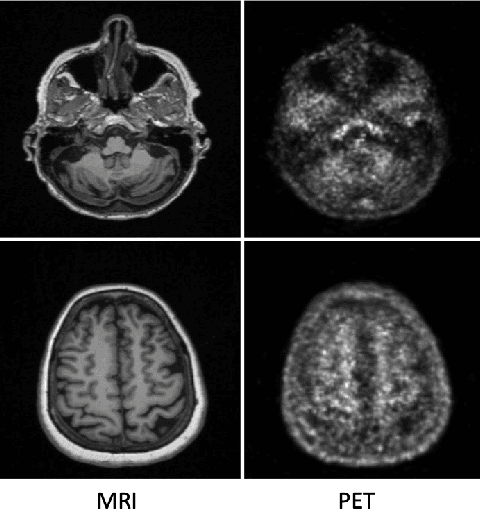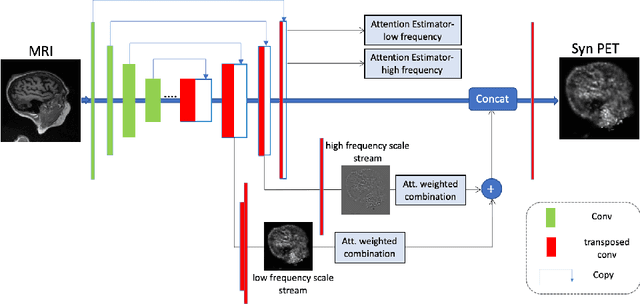FREA-Unet: Frequency-aware U-net for Modality Transfer
Paper and Code
Dec 31, 2020



While Positron emission tomography (PET) imaging has been widely used in diagnosis of number of diseases, it has costly acquisition process which involves radiation exposure to patients. However, magnetic resonance imaging (MRI) is a safer imaging modality that does not involve patient's exposure to radiation. Therefore, a need exists for an efficient and automated PET image generation from MRI data. In this paper, we propose a new frequency-aware attention U-net for generating synthetic PET images. Specifically, we incorporate attention mechanism into different U-net layers responsible for estimating low/high frequency scales of the image. Our frequency-aware attention Unet computes the attention scores for feature maps in low/high frequency layers and use it to help the model focus more on the most important regions, leading to more realistic output images. Experimental results on 30 subjects from Alzheimers Disease Neuroimaging Initiative (ADNI) dataset demonstrate good performance of the proposed model in PET image synthesis that achieved superior performance, both qualitative and quantitative, over current state-of-the-arts.
 Add to Chrome
Add to Chrome Add to Firefox
Add to Firefox Add to Edge
Add to Edge